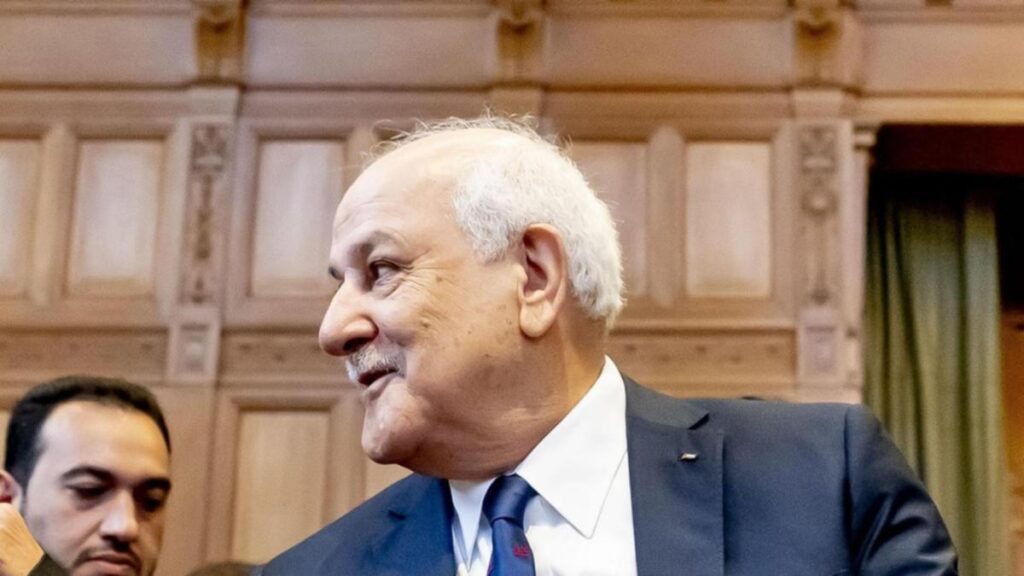A representative from Palestine informed the International Court of Justice (ICJ) that Israel is causing fatalities and forced relocations among civilians while also putting aid workers in Gaza at risk.
Israel refutes claims that it intentionally targets civilians and aid personnel amid its conflict with Hamas and chose not to participate in the court proceedings.
During the session in The Hague, Ammar Hijazi, the Palestinian envoy to the Netherlands, accused Israel of violating international law in the occupied regions.
“Israel is inflicting starvation, death, and displacement on Palestinians and is obstructing humanitarian organizations attempting to assist them,” he declared in court.
These hearings are part of a request made last year by the UN General Assembly, which asked the ICJ to assess Israel’s legal duties after it restricted the UN agency working with Palestinian refugees from operating in the region.
With backing from Norway, the General Assembly sought an advisory opinion from the court, which, while not legally binding, carries significant legal weight regarding Israel’s responsibilities in the occupied areas to “ensure and facilitate the unobstructed delivery of essential supplies vital for the survival of the Palestinian civilian population.”
The hearings commenced as the humanitarian situation in Gaza is on the verge of collapse.
Since March 2, Israel has prevented food, fuel, medicine, and other humanitarian aid from entering Gaza.
On March 18, Israel resumed its airstrikes, breaking a ceasefire agreement, and took control of significant areas of Gaza, claiming its aim is to compel Hamas to release more hostages. Despite this increase in Israeli military action, attempts to negotiate a ceasefire have stalled.
The World Food Programme reported last week that its food supplies in Gaza had been exhausted due to Israel’s nearly eight-week blockade, ending a crucial source of food for hundreds of thousands of Palestinians. Many families are finding it hard to provide for their children.
The United Nations was the first to speak at the court on Monday, followed by representatives from Palestine.
A total of 40 countries and four international organizations are expected to take part. Although Israel is not slated to address the court directly, it may submit a written statement.
The Israeli Foreign Ministry has not yet responded to requests for comments.
Scheduled to speak on Wednesday is the United States, which opposed the UN resolution.
The court’s ruling may take several months, but analysts believe that even though it won’t be legally binding, it could significantly influence international law, aid to Israel, and the public’s perspective.
“Advisory opinions offer clarity,” stated Juliette McIntyre, an international law expert at the University of South Australia, to the Associated Press. Governments often lean on them during global negotiations, and the outcome could influence pressure on Israel to lessen its aid restrictions.
However, it remains uncertain if any ruling will impact Israel’s actions.


